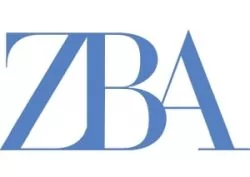Introduction
It is trite law that parties must scrupulously follow the prescribed procedure for appointing an arbitrator. This truism applies even when the appointment has to be made by the court in the absence of agreement by the parties. An improper or defective constitution of the arbitral panel has serious consequences, as graphically illustrated by a recent judgement of the Bombay High Court.
Facts
In Adani Enterprises Ltd v/s Antikeros Shipping Corporation, a Single Judge of the Bombay High Court, on 22 March 2019, recalled the appointment of an arbitral panel, 8 years after it was constituted.
On the failure of Adani Enterprises Ltd (Adani) to agree to the appointment of an arbitrator, the Bombay High Court on 21 April 2011, ordered the appointment of an arbitrator, at the behest of Antikeros Shipping (Antikeros).
Section 11 of the Arbitration & Conciliation Act, 1996, (Act) which is similar to Article 11 of the UNCITRAL Model law, provides that the appointing authority in an 'international commercial arbitration', i.e. where one of the parties is a foreigner, is vested in the Supreme Court in New Delhi. Antikeros is a Liberian registered ship owning company. Contrary to the legislative mandate of Section 11 of the Act, the Bombay High Court at the instance of Antikeros, (erroneously) appointed an arbitrator due to Adani's failure to nominate its appointee. The arbitral tribunal comprising of three arbitrators (including the umpire agreed to by the two arbitrators) was duly constituted and entered on the reference.
Adani's jurisdictional challenge to the improper constitution of the panel under Section 16 of the Act (Article 16 of the Model Law) was rejected by the tribunal on the basis that its jurisdiction was derived from the Bombay High Court's order of appointment under Section 11 of the Act. The tribunal reasoned that its appointment was valid until set aside or varied by judicial order.
Adani did not initially mount a judicial challenge the Bombay High Court's order of appointment and proceeded with the arbitration. Sometime in 2018, Adani applied to the Bombay High Court to recall the order of appointment of 21 April 2011 on the ground that the Bombay High Court had exceeded its jurisdiction and the constitution of the tribunal was fundamentally defective. By this time, witnesses had been cross-examined and final arguments were underway.
Adani contended that the delay be condoned because another Bombay High Court judgement in Roptonal Ltd v/s Anees Bamzee had in similar circumstances, ruled that if the appointment was flawed, the tribunal had no jurisdiction and parties could not by conduct, waiver or acquiesce confer jurisdiction on the High Court to appoint an arbitrator contrary to the legislative mandate of Section 11 of the Act.
The Single Judge whilst agreeing with Adani, gave short shrift to Antikeros argument that the order of recall by Adani was a delaying tactic and would lead to adverse cost and time implications and undermine the arbitration, which was at an advanced stage.
The Single Judge ruled that it could not usurp the authority of the Supreme Court as the appointing authority under Section 11 of the Act. In the Judge's view, Section 11 of the Act was not derogable by the parties. However, given the adverse implications of recalling the appointment of the panel at such a late stage, the Judge found a practical solution to the problem. The judge whilst recalling the appointment of the arbitral tribunal, suggested that Antikeros apply to the Supreme Court to validate the appointment of the existing tribunal and to permit the arbitration to continue.
Comment
The case exemplifies the pitfalls of a defective appointment of an arbitrator. It also remains to be seen whether the Supreme Court agrees to ex post facto validate the appointment of the arbitral panel and also if Adani agrees to the continuation of proceedings before the existing tribunal.
That said, some of the observations made by the Bombay High Court relating to the conferment of jurisdiction on an arbitral panel appear to be too wide and possibly incorrect.
The Bombay High Court whilst relying on earlier authorities ruling that parties could not confer jurisdiction on a statutory tribunal or court, extrapolated and applied the same principle to arbitration. This approach and reasoning may not be correct, as unlike statutory tribunals and courts, an arbitral tribunal's jurisdiction is consensual. Indeed, the entire basis of arbitration is consent.
Parties can by consent cure any defect in the initial appointment of the arbitral tribunal by continuing with the proceedings without protest. This is statutorily recognized in Section 4 of the Act (Article 4 of the Model Law). In the present case, Adani had protested as evidenced by its failed jurisdictional challenge under Section 16 of the Act.
But it is worth inquiring whether recalling the order of appointment would be justified in the absence of any challenge to the jurisdiction or authority of the arbitral tribunal. The finding by the Bombay High Court of Section 11 of the Act being non-derogable, suggests that parties cannot by conduct or consent waive any objection to the irregularity of the constitution of an arbitral panel.
The judgement is a salutary reminder to parties and their advisors that defective appointments apart from entailing a recall of the arbitral panel render an arbitral award vulnerable to judicial challenge.
Originally published April 5, 2019.
The above is a generic analysis and should not be regarded as a substitute for specific advice based on the facts of a client's objectives and specific commercial agreements reached. Please do reach out to us at mail@zba.co.in for any queries.

